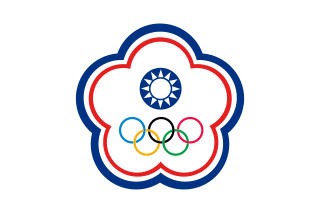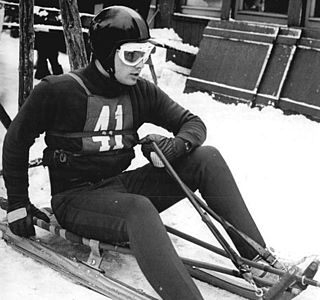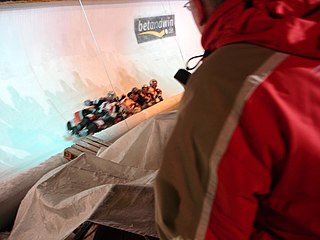
The 1964 Winter Olympics, officially known as the IX Olympic Winter Games and commonly known as Innsbruck 1964, were a winter multi-sport event which was celebrated in Innsbruck, Austria, from January 29 to February 9, 1964. The city was already an Olympic candidate, unsuccessfully bidding to host the 1960 Games. Innsbruck won the 1964 Games bid, defeating the cities of Calgary in Canada and Lahti in Finland. The sports venues, many of which were built for the Games, were located within a radius of 20 km (12 mi) around Innsbruck. The Games included 1,091 athletes from 36 nations, which was a record for the Winter Games at the time. Athletes participated in six sports and ten disciplines which bring together a total of thirty-four official events, seven more than the 1960 Winter Olympic Games. The luge made its debut on the Olympic program. Three Asian nations made their Winter Games debut: North Korea, India and Mongolia.

Chinese Taipei sent a delegation to compete at the 2006 Winter Olympics in Turin, Italy from 10–26 February 2006. Although the nation is known as Taiwan or the Republic of China, the International Olympic Committee mandates that the Chinese Taipei Olympic Committee flag and name is used, and not the flag of Taiwan, as per the Nagoya Resolution. This was Chinese Taipei's seventh time participating in the Winter Olympic Games. The Chinese Taipei delegation consisted of a single athlete, luger Ma Chih-hung. He finished 28th in the men's singles.
Luge at the 1964 Winter Olympics consisted of three events at Olympic Sliding Centre Innsbruck. The competition took place between 30 January and 4 February 1964.

Markus Prock is an Austrian luger who competed between 1983 and 2002. Born in Innsbruck, Prock competed in six Winter Olympics winning three medals in the men's singles event with two silvers and one bronze (2002).

The International Luge Federation (French: Fédération Internationale de Luge de Course(FIL); German: Internationaler Rennrodelverband) is the main international federation for all luge sports. Founded by 13 nations at Davos, Switzerland in 1957, it has members of 53 national luge associations as of 2009 and is based in Berchtesgaden, Germany. In reaction to the 2022 Russian invasion of Ukraine, in March 2022 the FIL banned all Russian athletes, coaches, and officials from its events, suspended all Russian officials appointed to its Commissions and Working Groups, and deemed Russia ineligible to host any of its events.

Klaus Bonsack, also known as Klaus-Michael Bonsack, was an East German luger who competed during the 1960s and early 1970s.
Josef Feistmantl was an Austrian luger who competed from the mid-1950s to the early 1970s. He competed at three Olympic Games.
Paul Aste was an Austrian bobsledder and luger who competed during the 1950s and the 1960s. He also took the Olympic Oath for athletes at the 1964 Winter Olympics in Innsbruck.

The Olympic Sliding Centre Innsbruck is a venue for bobsleigh, luge and skeleton located in Igls, Austria. The most recent version of the track was completed in 1975 and is the first permanent, combination artificially refrigerated bobsleigh, luge, and skeleton track, serving as a model for other tracks of its kind worldwide. It hosted the bobsleigh, luge, and skeleton competitions for the 2012 Winter Youth Olympics.
The men's luge at the 2010 Winter Olympics took place on 13–14 February 2010 at the Whistler Sliding Centre in Whistler, British Columbia. Germany's Felix Loch was the two-time defending world champion and won the gold medal with the fastest time in each of the four runs. The test event that took place at the venue was won by Germany's David Möller, who would win the silver medal in this event. Italy's Armin Zöggeler was the two-time defending Olympic champion and won a bronze medal in this event. The last World Cup event prior to the 2010 games took place in Cesana, Italy on 30 January 2010 and was won by Zöggeler, who also won the overall World Cup title.

The women's luge at the 2010 Winter Olympics in Vancouver, Canada took place on 15–16 February at the Whistler Sliding Centre in Whistler, British Columbia. Germany's Sylke Otto was the two-time defending Olympic champion. Otto retired midway through the 2006-07 season in January 2007 to pregnancy and after suffering a crash at the track in Königssee, Germany. Erin Hamlin of the United States was the defending world champion. The test event that took place at the venue was won by Germany's Natalie Geisenberger. The last World Cup event prior to the 2010 games took place in Cesana, Italy on 31 January 2010 and was won by Geisenberger. Geisenberger's teammate Tatjana Hüfner, the defending Olympic bronze medalist, won the overall World Cup for 2009-10 season in women's singles.

Sports are widely practiced in Austria, both in professional and amateur competitions. The most popular sports are association football, alpine skiing and ice hockey.
The Women's singles luge competition at the 1992 Winter Olympics in Albertville was held on 11 and 12 February, at La Plagne.
The men's singles luge competition at the 1976 Winter Olympics in Innsbruck was held from 4 to 7 February, at Olympic Sliding Centre Innsbruck.
The Women's singles luge competition at the 1976 Winter Olympics in Innsbruck was held from 4 to 7 February, at Olympic Sliding Centre Innsbruck.
The Doubles luge competition at the 1976 Winter Olympics in Innsbruck was held on 10 February, at Olympic Sliding Centre Innsbruck.
The Women's singles luge competition at the 1964 Winter Olympics in Innsbruck was held from 30 January to 4 February, at Olympic Sliding Centre Innsbruck.
The Doubles luge competition at the 1964 Winter Olympics in Innsbruck was held on 5 February, at Olympic Sliding Centre Innsbruck.









